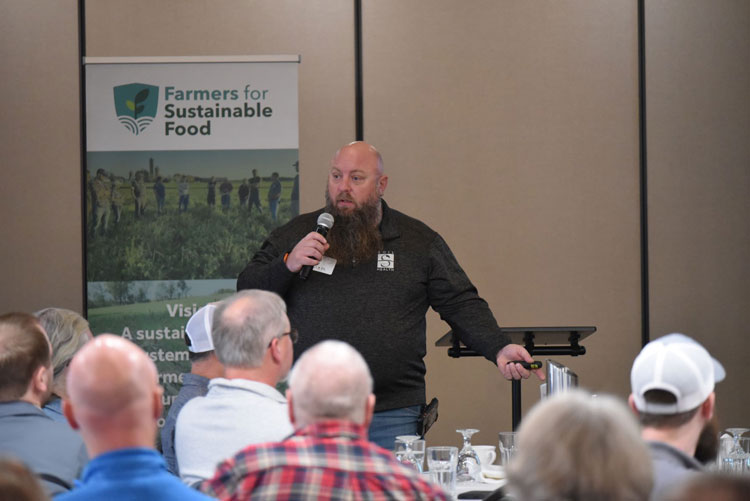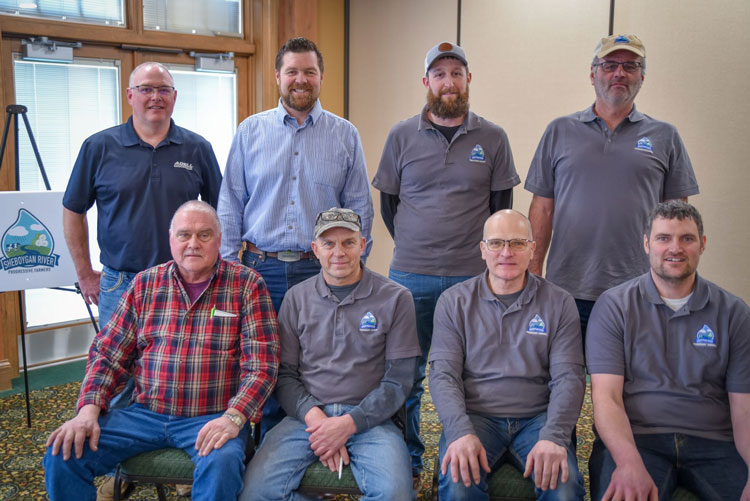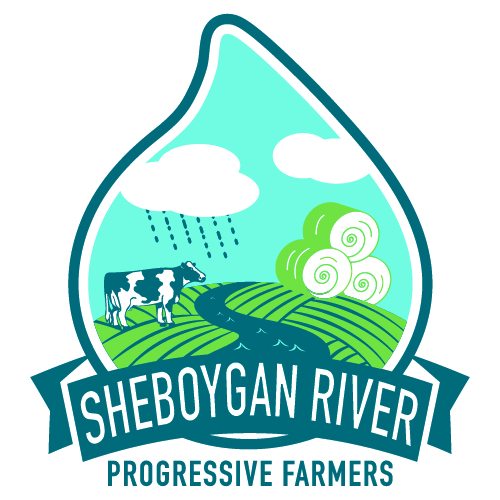The information below has been supplied by dairy marketers and other industry organizations. It has not been edited, verified or endorsed by Hoard's Dairyman.
Area farmers learned how farmers across the Midwest work to improve soil health and were challenged to think about how they are protecting the local watershed. Nearly 50 attendees heard from various experts and local farmers at the Sheboygan River Progressive Farmers annual meeting on Feb. 16.

Dr. Lee Briese, an independent crop consultant from central North Dakota, gave farmers ideas on how to help their plants and soils thrive. He emphasized that its not a one-size-fits-all approach. Briese shared pictures and stories of his experiences in North Dakota with insect problems, weeds, water, compaction, disease and other challenges farmers face in Wisconsin. Farmers shared about local issues and bounced ideas off others in the room on alleviating these obstacles. It is evident local farmers are seeing success with cover crops and reduced tillage.
“When you make tillage changes, you mess with each layer of the soil,” Briese said. “Tillage is like surgical intervention, you only do surgery when you need to fix a problem. Then, you leave it and let it heal instead of reopening it over and over.”
Reducing tillage and utilizing cover crops are not new in the Sheboygan River area. Membership in SRPF continues to grow, along with the acres in conservation. SRPF completed the fifth year of its member conservation practice survey. Shawn Wesener, data collection specialist for Farmers for Sustainable Food, shared the group’s results. More than half the acres farmed by the membership, 65%, are either reduced-till or no-till. Also, 46% of member farms have tried planting green. As more members incorporate less soil disturbance, they improve the soil structure and overall water quality.
Dan Smith, southwest outreach specialist for the University of Wisconsin Nutrient and Pest Management Program, shared updates from an ongoing study about cover crop biomass and nutrient cycling that some SRPF members are participating in. He explained how the data is used to help understand the nutrient levels in the biomass left from cover crops. The study also looks at when these growing crops need nutrients compared to when the terminated cover crop releases them. He explained how plants receive nutrients like a “soil savings account.”
“When you plant a cover crop, that crop takes nutrient value out of the soil and puts it into the cover crop above ground biomass and below ground root mass almost like an investment fund. The farmer doesn’t know exactly when they will get those nutrients or ‘return’ back from biomass left from cover crops,” Smith said. “That’s where this research is trying to figure out when that nutrient availability may occur so that farmer can take full advantage of reusing those nutrients for the next crop.”
SRPF President Brody Stapel highlighted the importance of data and sharing of information between farmers as he introduced a farmer panel featuring farmers Lee Kinnard, Bob Danes, Matt Winker and Dale Theel, each representing different farmer-led groups from northeast Wisconsin. All shared similar goals of trying to sequester nutrients and keep their soils healthy.

Following the public meeting, SRPF held a members-only meeting where new board members Don Van De Wege and Mike Mulder were elected to the board. The group recognized outgoing board members John Helmer and Travis Luedke. The other remaining board members are Mark Breunig, Brian Huenink (treasurer), Mark Loehr (vice president), Derek Sippel (secretary), Brody Stapel (president), and Joe Wagner.



About Sheboygan River Progressive Farmers:
Sheboygan River Progressive Farmers is a nonprofit farmer-led conservation group in the Sheboygan River watershed in Sheboygan and Fond du Lac Counties in Wisconsin whose members explore farming strategies that lead to improved soil health, greater farming efficiency, sustained profitability and reduced environmental impact. Members share information gained through field trials with fellow farmers and strive to foster an understanding of the role of agriculture in the community. More information: https://srpfarmers.com



